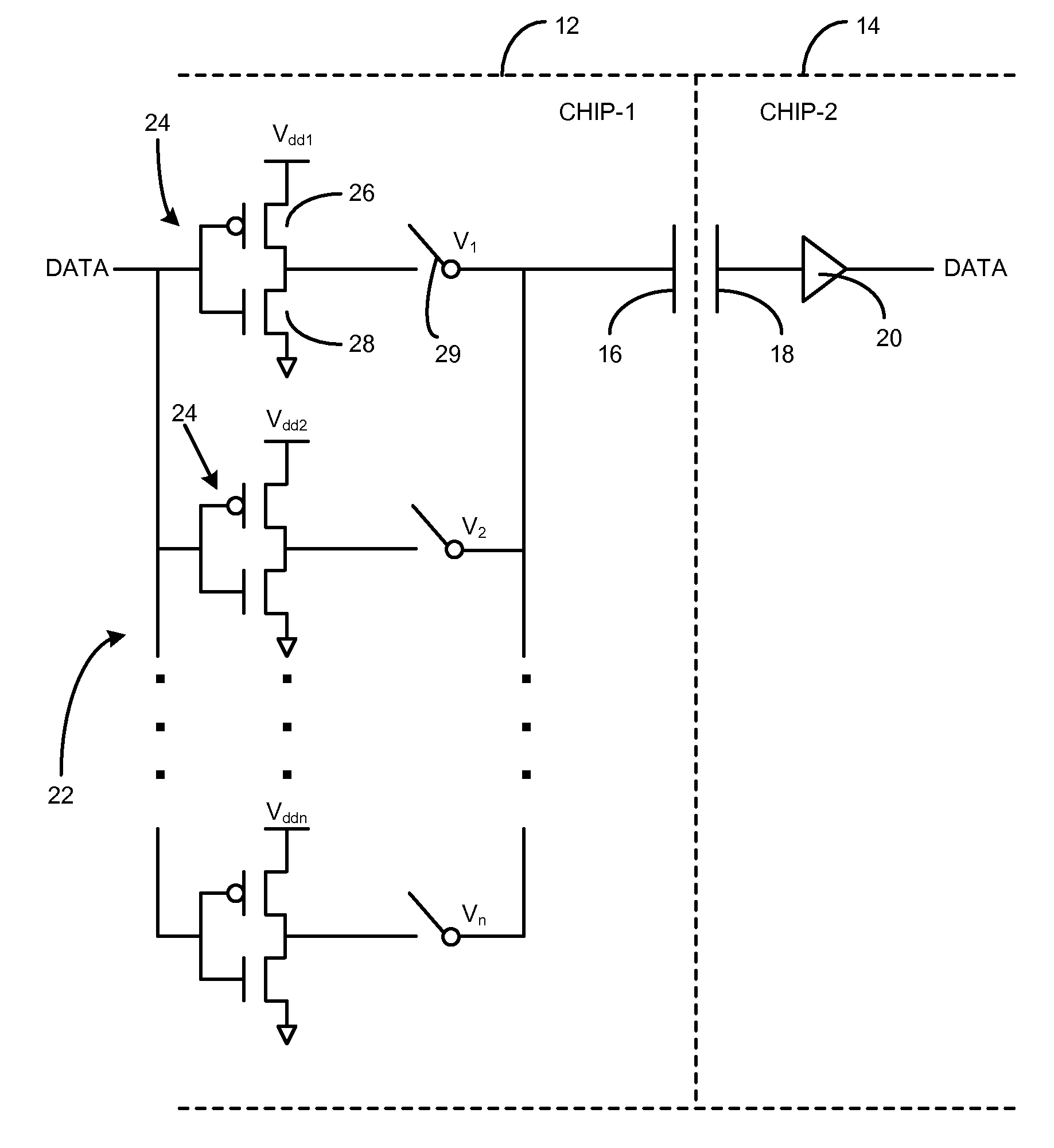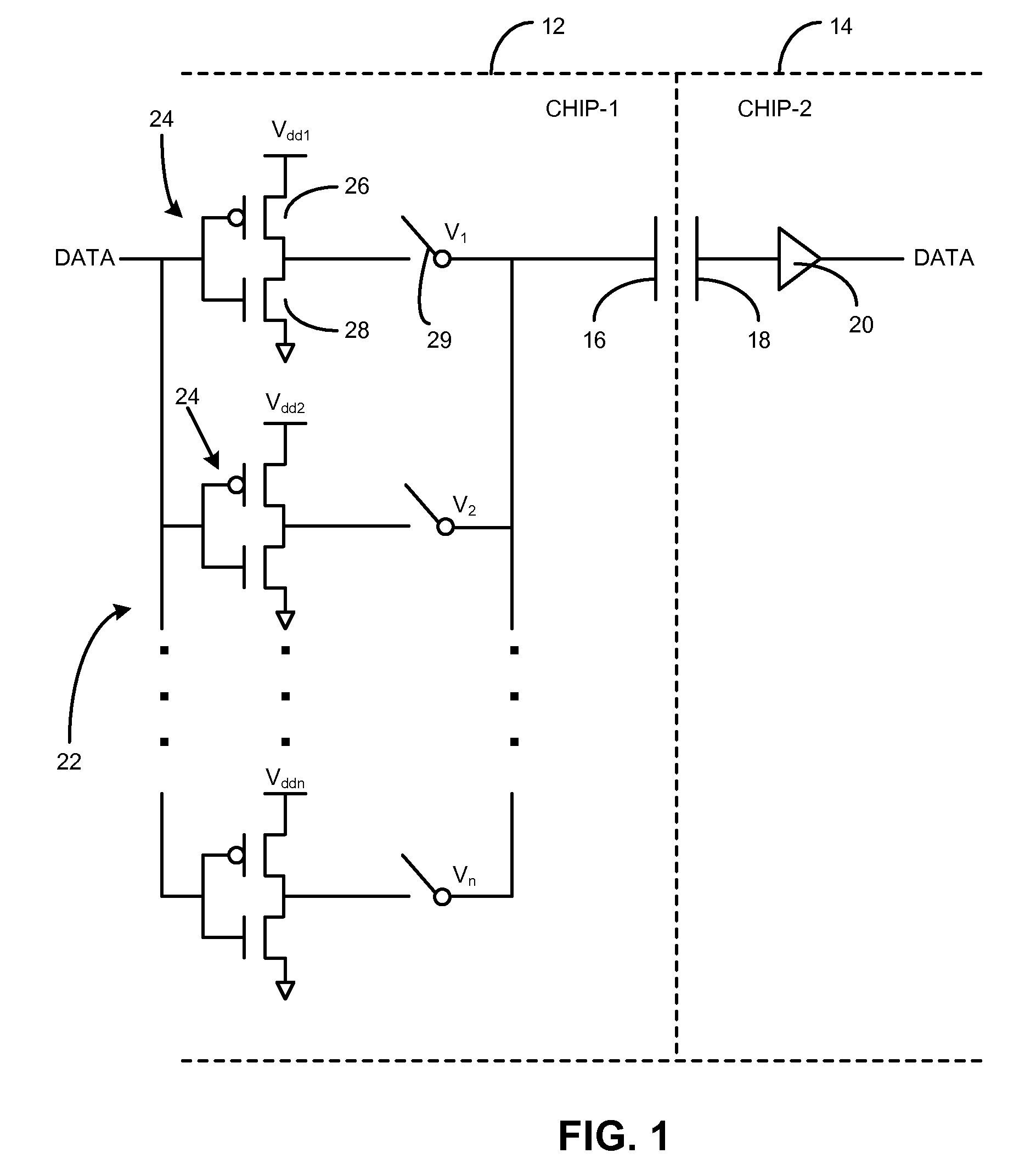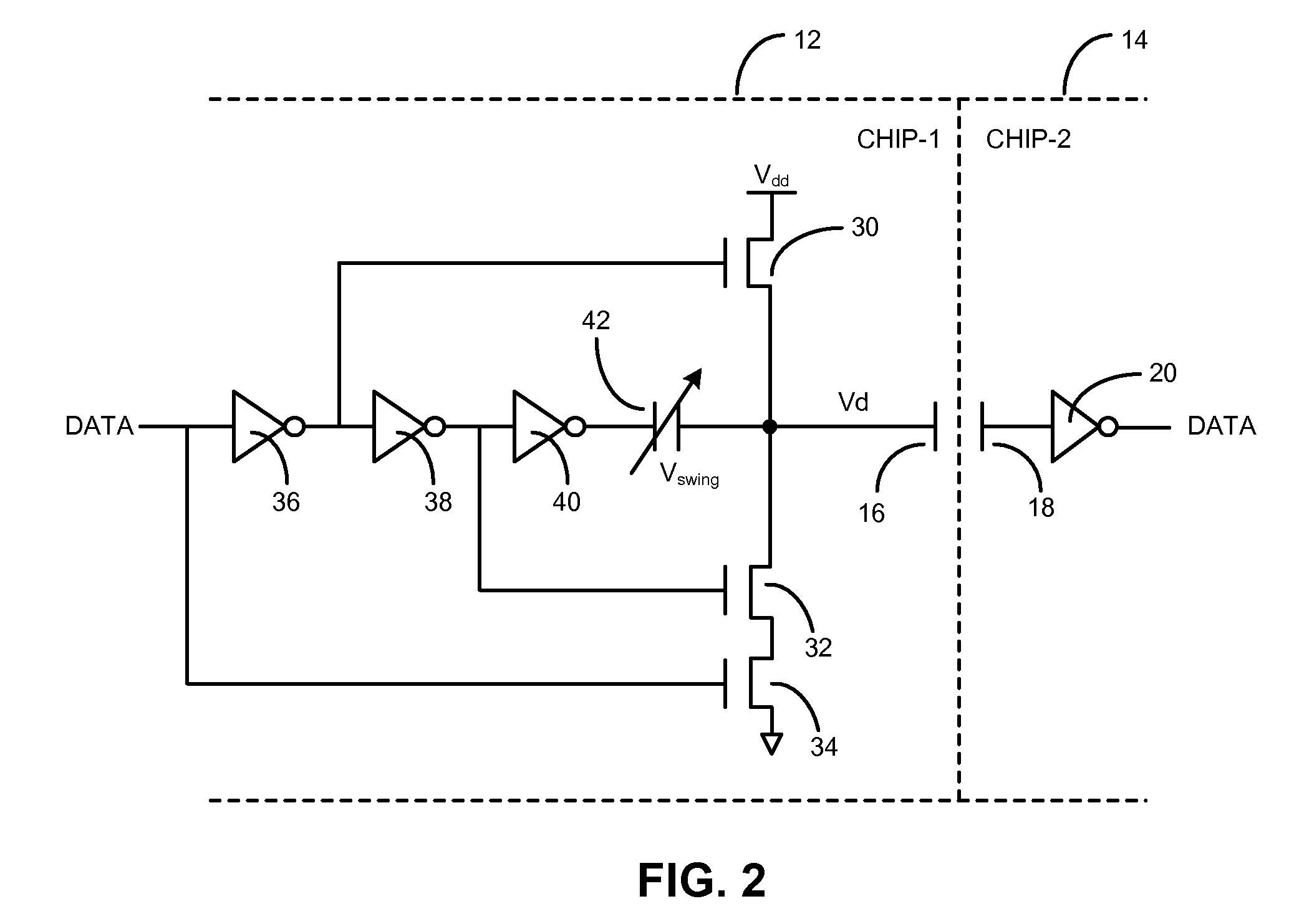Misalignment compensation for proximity communication
a technology of proximity communication and misalignment compensation, which is applied in the field of semiconductor chips, can solve the problems of reducing the effectiveness of face-to-face proximity communication, difficult and expensive implementation, and art has failed to teach a graceful degrading of link performance, so as to improve the performance of the proximity communication system, increase or decrease the misalignment
- Summary
- Abstract
- Description
- Claims
- Application Information
AI Technical Summary
Benefits of technology
Problems solved by technology
Method used
Image
Examples
Embodiment Construction
[0033]The following description is presented to enable any person skilled in the art to make and use the invention and is provided in the context of a particular application and its requirements. Various modifications to the disclosed embodiments will be readily apparent to those skilled in the art, and the general principles defined herein may be applied to other embodiments and applications without departing from the spirit and scope of the present invention. Thus, the present invention is not limited to the embodiments shown but is to be accorded the widest scope consistent with the principles and features disclosed herein.
[0034]A proximity communication channel between two chips requires the two chips to be accurately aligned face-to-face. Data can then be sent between the chips using either capacitive, inductive, conductive, or optical coupling means. Any chip misalignment will reduce the coupling between the two chips and lower the effectiveness of the communication. This misa...
PUM
| Property | Measurement | Unit |
|---|---|---|
| signal current | aaaaa | aaaaa |
| length | aaaaa | aaaaa |
| size | aaaaa | aaaaa |
Abstract
Description
Claims
Application Information
 Login to View More
Login to View More - R&D
- Intellectual Property
- Life Sciences
- Materials
- Tech Scout
- Unparalleled Data Quality
- Higher Quality Content
- 60% Fewer Hallucinations
Browse by: Latest US Patents, China's latest patents, Technical Efficacy Thesaurus, Application Domain, Technology Topic, Popular Technical Reports.
© 2025 PatSnap. All rights reserved.Legal|Privacy policy|Modern Slavery Act Transparency Statement|Sitemap|About US| Contact US: help@patsnap.com



